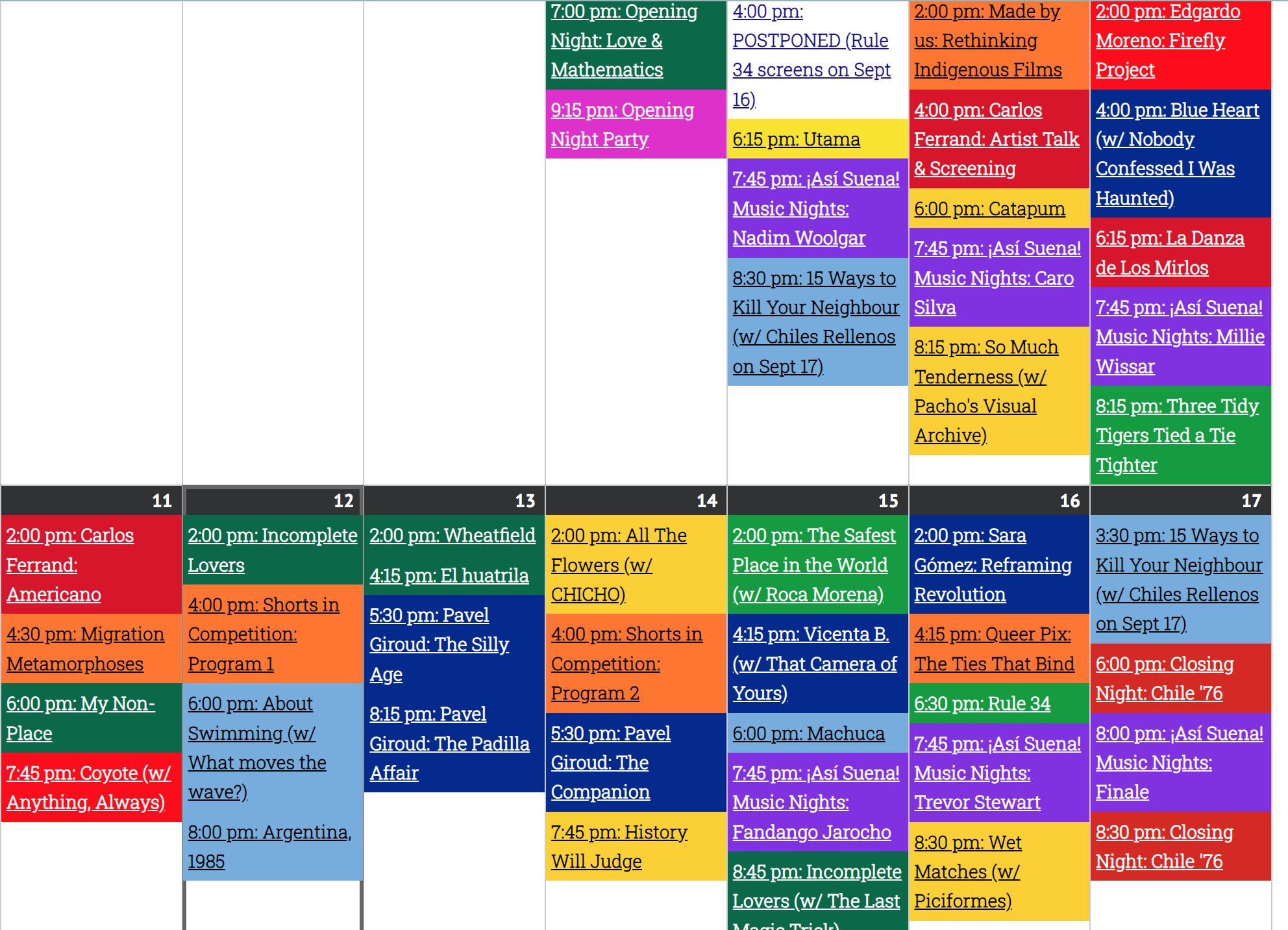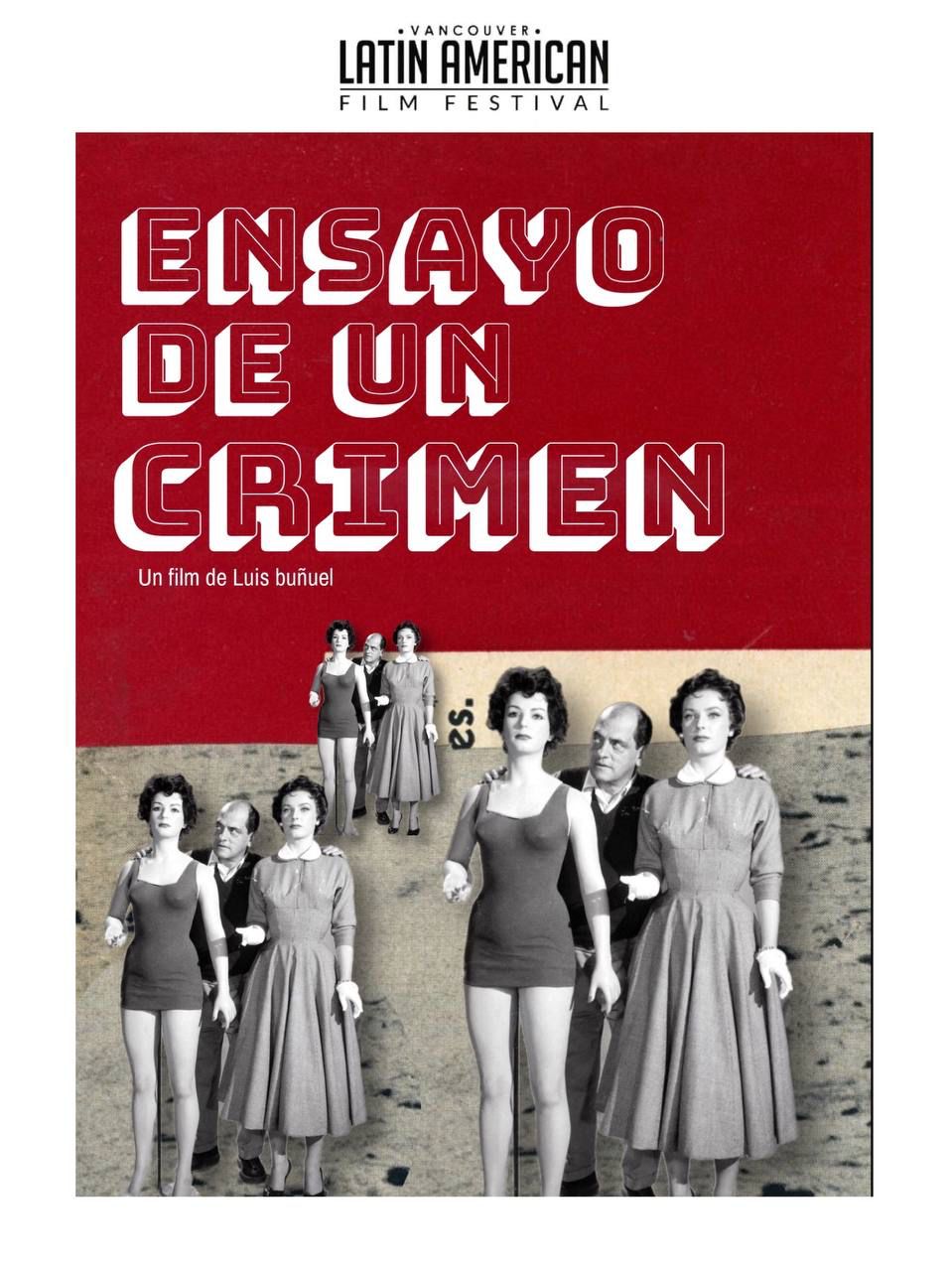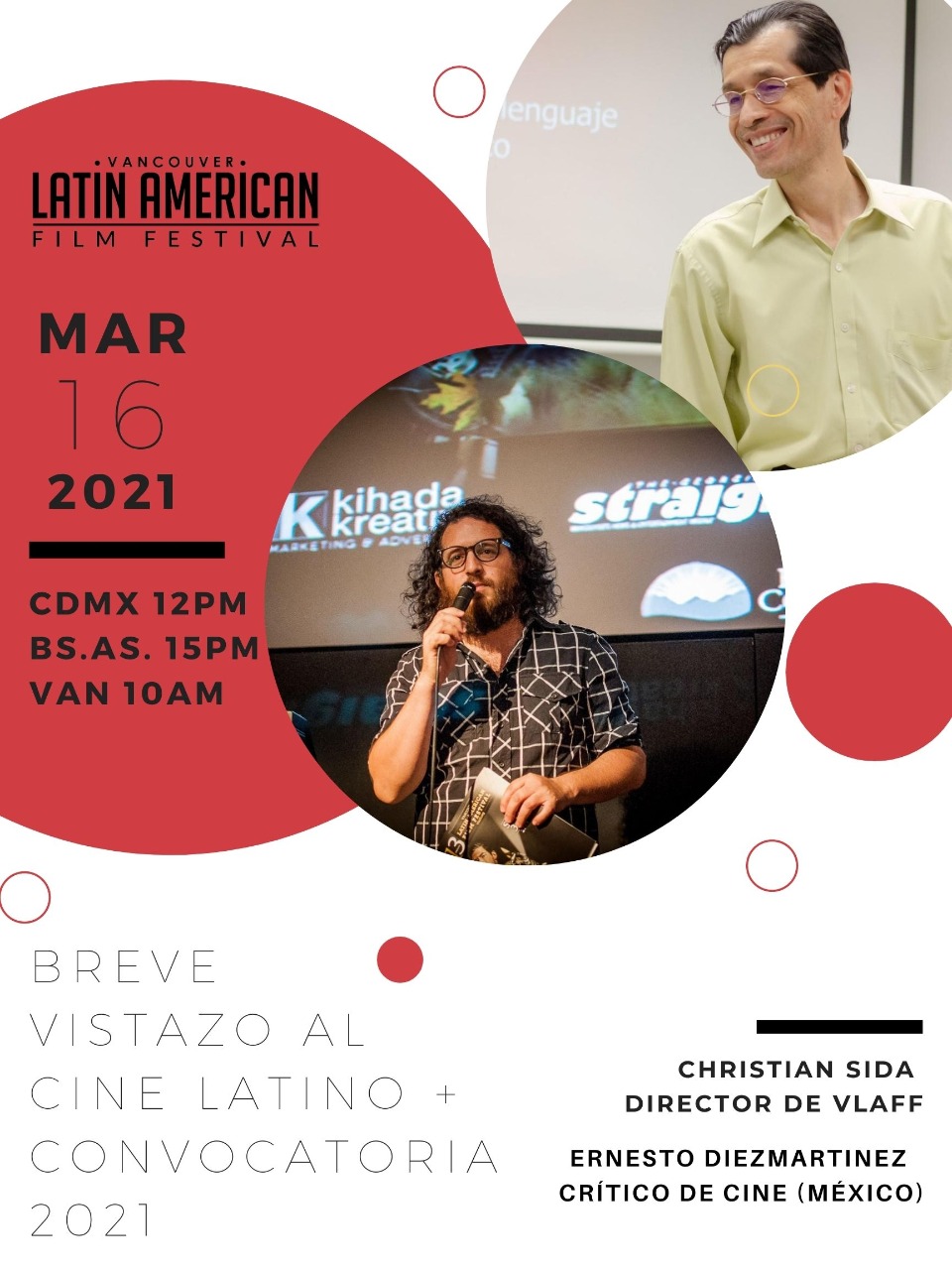(el texto en español lo encuentra abajo)
There are five films directed by women and three by men; three documentaries and five fiction features; two Argentine films, one Mexican, one Brazilian, one Colombian, one Peruvian, one Guatemalan and an Argentine-Brazilian-Uruguayan co-production. It is a selection that is committed to diversity – because of the geographical origin of the films, but also because of the themes they deal with – and, furthermore, because of the imagination, both in form and in substance. In what is told and from which perspective it is done.
PANORAMA LATINO
LA IMAGINACIÓN Y LA DIVERSIDAD
Ernesto Diezmartínez
Para su edición número 19, el Vancouver Latin American Film Festival ha presentado en su sección competitiva New Directors una notable selección de ocho cintas producidas y realizadas en América Latina, elegidas entre un centenar de filmes inscritos, todos ellos primeros o segundos largometrajes. Se trata de cinco películas dirigidas por mujeres y tres por hombres; tres documentales y cinco ficciones; dos cintas argentinas, una mexicana, una brasileña, una colombiana, una peruana, una guatemalteca y una coproducción argentino-brasileña-uruguaya. Se trata de una selección que apuesta por la diversidad -por el origen geográfico de los filmes, pero también por las temáticas que tratan- y, además, por la imaginación, tanto en la forma como en el fondo. En lo que se cuenta y desde qué perspectiva se hace.
En Chico Ventana también quisiera tener un submarino (Uruguay-Argentina-Brasil-Holanda-Filipinas, 2020), el protagonista sin nombre, pero identificado como el Chico Ventana del título, quien trabaja en un exclusivo crucero, encuentra un portal por el cual entra al departamento de una joven mujer de Montevideo. Al mismo tiempo, en el otro extremo del mundo, un grupo de campesinos filipinos vigilan una cabaña que se mueve como si tuviera vida propia. Esta cinta del debutante Alex Piperno se mueve entre la fantasía y el humor, con una vuelta de tuerca hacia el desenlace que resulta, al mismo tiempo, tan lógica como imposible.
Javier Van de Couter, director y guionista de Implosión (Argentina-Chile, 2021), tiene una estrategia narrativa similar: esta road-movie sobre dos amigos que han salido por la carretera a resolver algo nunca discutido que sucedió en su adolescencia, escamotea toda información relevante hasta que todo estalla -más bien, implosiona- cuando nos acercamos hacia el emotivo e inolvidable final. En 1991 (Guatemala, 2021), de Sergio Ramírez, vemos a otros jóvenes en acción, en el año del título: una sociedad guatemalteca abismalmente dividida no solo entre clases sociales, sino entre categoría casi biológicas, entre los que están destinados a ser cazados y los que pueden, desde su privilegio, cazar. Como sucede con el filme de Van de Couter, en esta cinta de Ramírez hay un impulso realista que domina de principio a fin su nerviosa puesta en imágenes.
No podemos hablar de nerviosismo en el caso de Meu nome é Bagdá (Brasil, 2020), de Caru Alves de Souza, porque aunque la cámara no conoce descanso, esto sucede porque sigue muy de cerca a Bagdad, una ingobernable adolescente skater que vive en algún barrio bravo de Sao Paulo. Se trata de una vibrante crónica de crecimiento y maduración juvenil realizado desde una perspectiva feminista y militante. La empatía de Alves de Souza por su personaje ficticio es muy similar a la que transmite Cecilia del Valle por la protagonista de su documental Canela (Argentina, 2020), centrado en la tal “Canela” Grandi, una mujer trans -arquitecta, profesora, con tres hijos y una nieta- que ha decidido, finalmente, cambiar de sexo y a los 58 años de edad (“Me voy a jubilar antes de ser mujer”).
La serenidad con la que del Valle se acerca a Canela la comparte la directora Patricia Wiesse Risso en su documental Mujer de soldado (Perú, 2020), aunque el tono del filme sea muy diferente. En 1984, Magda, una jovencita quechua fue violada por un miembro de la tropa estacionada en los montes del Perú. El testimonio de ella y otras tres mujeres violentadas -obligadas a convertirse en “mujeres de soldados”, pues- se presenta sin miramientos ni subterfugios: ellas no pueden permitirse el olvido. Otro ejercicio de memoria, aunque muy diferente, es el que lleva a cabo Mercedes Gaviria en su documental Como el cielo después de llover (Colombia-Argentina, 2020), pues nos entrega el retrato de su talentoso y complicado padre, el cineasta Víctor Gaviria, a través de un fascinante detrás de las cámaras de la filmación del más reciente largometraje de él, el impresionante melodrama social La mujer del animal (2016). La crónica cinematográfica de la filmación se funde y confunde con el amor, la admiración, pero también la crítica de Mercedes hacia su padre. Ni modo: la vida es complicada.
Y más lo es, ni se diga, en Nudo Mixteco (México, 2021), drama femenino dirigido por la espléndida actriz convertida en cineasta Ángeles Cruz. Tres mujeres que viven en tierras mixtecas entrecruzan sus complicadas vidas en un guion -escrito por la propia directora- que funciona como mecanismo de relojería, dislocando tiempos y espacios, pero uniendo a sus tres mujeres en la misma búsqueda: la libertad.
Esto es lo que encontramos en los ocho títulos del New Directors del VLAFF 2021: una emocionante libertad creativa, desde la diversidad, desde la imaginación. Bienvenidos sean todos a descubrirla, a compartirla, a gozarla.






